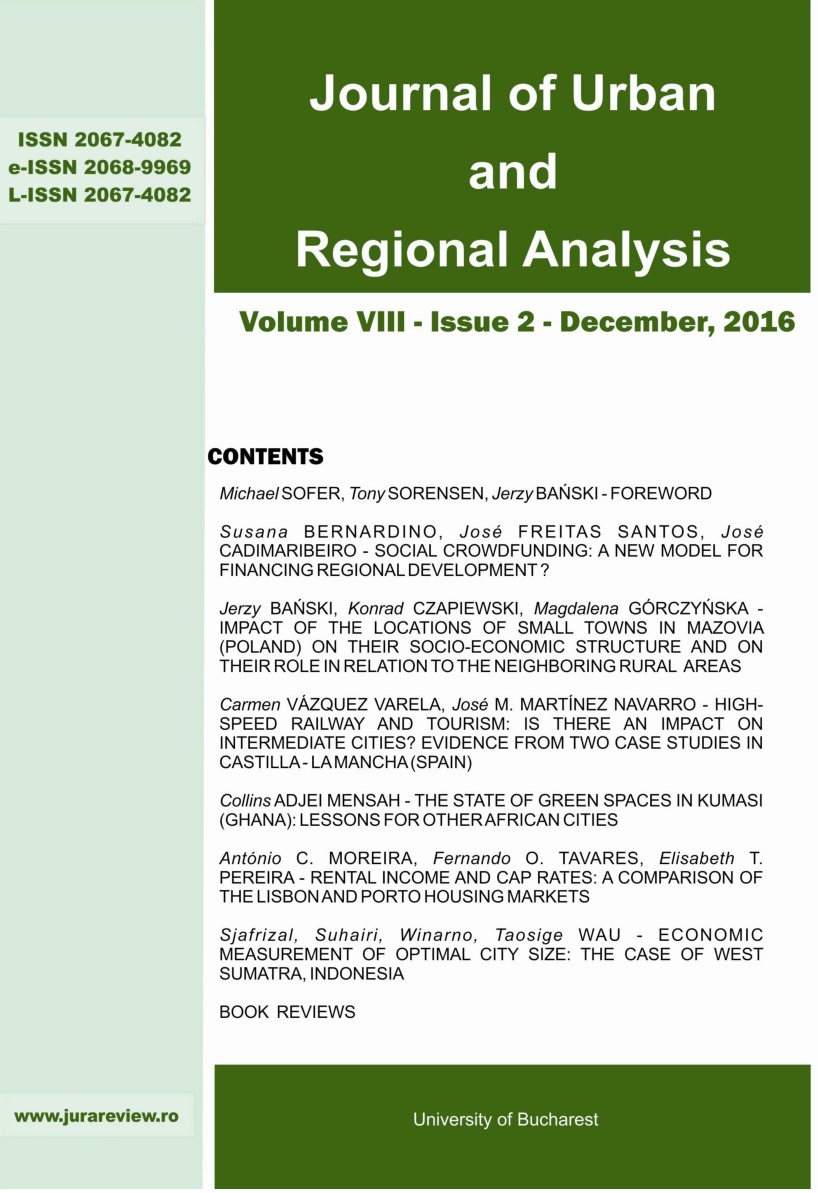ECONOMIC MEASUREMENT OF OPTIMAL CITY SIZE: THE CASE OF WEST SUMATRA, INDONESIA
ECONOMIC MEASUREMENT OF OPTIMAL CITY SIZE: THE CASE OF WEST SUMATRA, INDONESIA
Author(s): . Sjafrizal, . Suhairi, sir Winarno, Taosige WauSubject(s): Rural and urban sociology, Economic development, Socio-Economic Research
Published by: Editura Universitară
Keywords: urban growth; optimal city size; population density; economic measurement; West Sumatran cities;
Summary/Abstract: This is an empirical study of economic measurement of the optimal size of seven cities in West Sumatra region, Indonesia. The empirical findings are quite interesting since the calculated optimal city size does not result in a single measure as mostly previous studies found, but they vary in accordance with the economic approaches used. The optimal city size measured by using the maximum profit approach would have been larger in size compared to those measured by the minimum cost and maximum net benefit approaches. Meanwhile, the cities measured by using the maximum net benefit have larger size than those of the minimum cost. Unlike previous studies, the measurement of optimal city size in this study is performed in terms of population density rather than the total population, in order to consider the influence of land area to the optimal city size. Moreover, by using the population density, the optimal city size becomes a relative index which enables us to compare it with the related size in other regions.
Journal: Journal of Urban and Regional Analysis
- Issue Year: 8/2016
- Issue No: 2
- Page Range: 203-215
- Page Count: 13
- Language: English

